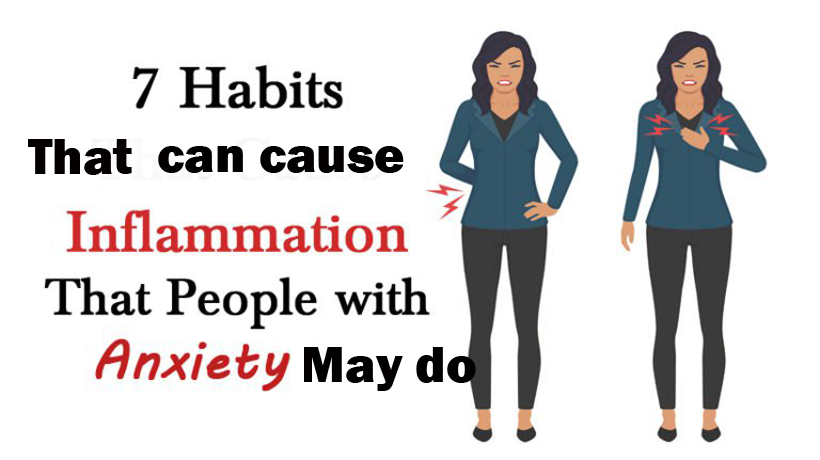Anxiety can lead to an increase in medical conditions, including psychological disorders. According to research published in 2017 in the journal Frontiers in Human Neuroscience, inflammation is a result of stress-related habits. Consistent stress can lead to disruption in an individual’s homeostasis pattern, which can eventually lead to diseases. By becoming conscious of the following habits, it is our hope that severe inflammation can be avoided.
Shallow breathing
When an individual begins to feel anxious, or their bodies go into “panic mode,” it is common for deep breathing to become replaced by quick, shallow breaths. However, it can be difficult to be aware of breathing patterns during high anxiety moments. The most efficient way to breathe is through your diaphragm. By doing so, it relaxes the body and eliminates toxins more efficiently, according to website Expand-A-Lung. As we get older, we tend to breathe with our chests instead.
Eating only processed food
When anxious, picking on whatever food is in sight seems like a manageable way to cope with our stress. This can include chips, cookies, and chocolate. However, even though processed foods are cheap and convenient, they are unhealthy and boost an inflammatory response in our bodies. Keeping nutritious snacks in sight can help you change to a healthier diet.
Too much sugar consumption
Sugar consumption is normal if consumed in moderation. However, too much sugar can have a negative toll on the human body, inflammation being one of the consequences. Eating sweet foods increases our serotonin levels, but also increases our body’s calorie and fat compilation. Unwanted calories and fat results in inflammation in the body, according to the website Healthline.
Smoking
One of the most common nervous habits, smoking leads to varying forms of inflammation. Nicotine releases inflammatory cells into the body, according to 2012 publication Cigarette Smoking and Inflammation.
Constant thinking/working
Sometimes, overdoing our working limitations can negatively affect our health. Cortisol levels tend to increase, which causes inflammation within the body, according to a 2015 research publication.
Lack of sleep
Our sympathetic nervous system is activated when one is nervous, stressed, and worrying about the unexpected. Again, the production of cortisol increases, due to the lack of sleep, when focusing on our emotions.
Negative self-talk
Self-imposed stress, such as negative self-talk, puts unnecessary pressure on yourself. This leads to more anxiety, which means more stress and more cortisol in your body, ultimately resulting with inflammation. It is possible to replace negative thoughts with positive ideas and words of encouragement.
Sources:
https://www.ncbi.nlm.nih.gov/pmc/articles/PMC5476783/
https://www.ncbi.nlm.nih.gov/pmc/articles/PMC3261116/
https://expand-a-lung.com/how-to-breathe-deeply-to-detox-the-body/
https://www.healthline.com/nutrition/sugar-and-inflammation
https://www.bustle.com/p/7-anxious-habits-that-can-make-you-more-prone-to-inflammation-15919149
https://www.ncbi.nlm.nih.gov/pmc/articles/PMC4673634/



